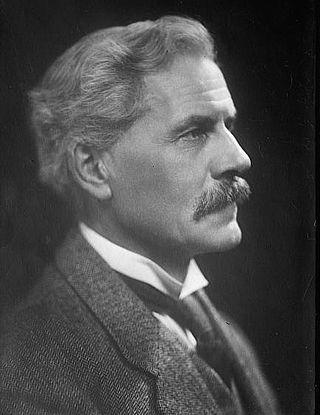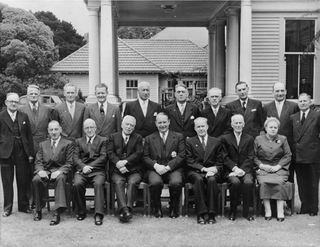Unemployment benefits, also called unemployment insurance, unemployment payment, unemployment compensation, or simply unemployment, are payments made by authorized bodies to unemployed people. In the United States, benefits are funded by a compulsory governmental insurance system, not taxes on individual citizens. Depending on the jurisdiction and the status of the person, those sums may be small, covering only basic needs, or may compensate the lost time proportionally to the previous earned salary.
Originality is the aspect of created or invented works that distinguish them from reproductions, clones, forgeries, or substantially derivative works. The modern idea of originality is according to some scholars tied to Romanticism, by a notion that is often called romantic originality. The validity of "originality" as an operational concept has been questioned. For example, there is no clear boundary between "derivative" and "inspired by" or "in the tradition of."
A means test is a determination of whether an individual or family is eligible for government assistance or welfare, based upon whether the individual or family possesses the means to do without that help.

The first MacDonald ministry of the United Kingdom lasted from January to November 1924. The Labour Party, under Ramsay MacDonald, had failed to win the general election of December 1923, with 191 seats, although the combined Opposition tally exceeded that of the Conservative government, creating a hung parliament. Stanley Baldwin remained in office until January 1924.

The second MacDonald ministry was formed by Ramsay MacDonald on his reappointment as prime minister of the United Kingdom by King George V on 5 June 1929. It was only the second time the Labour Party had formed a government; the first MacDonald ministry held office in 1924.
General elections were held in Southern Rhodesia on 19 September 1928, the second elections to the Legislative Assembly. The Rhodesia Party, which had won an overwhelming victory in the previous elections in 1924, was re-elected with a slightly reduced majority.

Social welfare has long been an important part of New Zealand society and a significant political issue. It is concerned with the provision by the state of benefits and services. Together with fiscal welfare and occupational welfare, it makes up the social policy of New Zealand. Social welfare is mostly funded through general taxation. Since the 1980s welfare has been provided on the basis of need; the exception is universal superannuation.

The Third Labour Government of New Zealand was the government of New Zealand from 1972 to 1975. During its time in office, it carried out a wide range of reforms in areas such as overseas trade, farming, public works, energy generation, local government, health, the arts, sport and recreation, regional development, environmental protection, education, housing, and social welfare. Māori also benefited from revisions to the laws relating to land, together with a significant increase in a Māori and Island Affairs building programme. In addition, the government encouraged biculturalism and a sense of New Zealand identity. However, the government damaged relations between Pākehā and Pasifika New Zealanders by instituting the Dawn Raids on alleged overstayers from the Pacific Islands; the raids have been described as "the most blatantly racist attack on Pacific peoples by the New Zealand government in New Zealand’s history". The government lasted for one term before being defeated a year after the death of its popular leader, Norman Kirk.

The Second Labour Government of New Zealand was the government of New Zealand from 1957 to 1960. It was most notable for raising taxes on alcohol, cigarettes and petrol, a move which was probably responsible for the government lasting for only one term. It was headed by the Prime Minister Walter Nash.

Unemployment was the dominant issue of British society during the interwar years. Unemployment levels rarely dipped below 1,000,000 and reached a peak of more than 3,000,000 in 1933, a figure which represented more than 20% of the working population. The unemployment rate was even higher in areas including South Wales and Liverpool. The Government extended unemployment insurance schemes in 1920 to alleviate the effects of unemployment.
Social security, in Australia, refers to a system of social welfare payments provided by Australian Government to eligible Australian citizens, permanent residents, and limited international visitors. These payments are almost always administered by Centrelink, a program of Services Australia. In Australia, most payments are means tested.
Incapacity Benefit was a British social security benefit that was paid to people facing extra barriers to work because of their long-term illness or their disability. It replaced Invalidity Benefit in 1995. The government began to phase out Incapacity Benefit in 2008 by making it unavailable to new claimants, and later moved almost all the remaining long-term recipients onto Employment and Support Allowance.
The welfare trap theory asserts that taxation and welfare systems can jointly contribute to keep people on social insurance because the withdrawal of means-tested benefits that comes with entering low-paid work causes there to be no significant increase in total income. According to this theory, an individual sees that the opportunity cost of getting a better paying job is too great for too little a financial return, and this can create a perverse incentive to not pursue a better paying job.
R (Seymour-Smith) v Secretary of State for Employment [2000] UKHL 12 and (1999) C-167/97 is a landmark case in United Kingdom labour law and European labour law on the qualifying period of work before an employee accrues unfair dismissal rights. It was held by the House of Lords and the European Court of Justice that a two-year qualifying period had a disparate impact on women given that significantly fewer women worked long enough to be protected by the unfair dismissal law, but that the government could, at that point in the 1990s, succeed in an objective justification of increasing recruitment by employers.

Unemployment in the United Kingdom is measured by the Office for National Statistics.
The Social Security Act 1938 is a New Zealand Act of Parliament concerning unemployment insurance which established New Zealand as a welfare state. This act is important in the history of social welfare, as it established the first ever social security system in the world.
South African labour law regulates the relationship between employers, employees and trade unions in the Republic of South Africa.

R v Secretary of State for Work and Pensions [2013] UKSC 68 is a United Kingdom constitutional law and labour law case that found the conduct of the Department for Work and Pensions "workfare" policy was unlawful. Caitlin Reilly, an unemployed geology graduate, and Jamieson Wilson, an unemployed driver, challenged the Jobcentre policy of making the unemployed work for private companies to get unemployment income. The outcome of the case affects over 3,000 claimants and entails around £130m unpaid benefits.
The Work Capability Assessment (WCA) is used by the British Government's Department for Work and Pensions (DWP) to decide whether and to what extent welfare benefit claimants are capable of doing work or work-related activities. The outcome of the assessment also determines whether claimants are entitled to "new style" Employment and Support Allowance (ESA) and potentially additional elements of Universal Credit (UC).

Kostal UK Ltd v Dunkley [2021] UKSC 47 is a UK labour law case, concerning the right to suffer no detriment for joining, or inducements to not join, a trade union.









